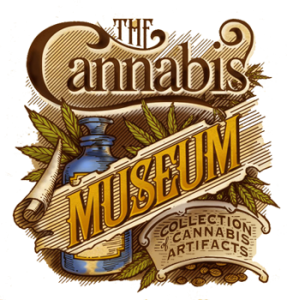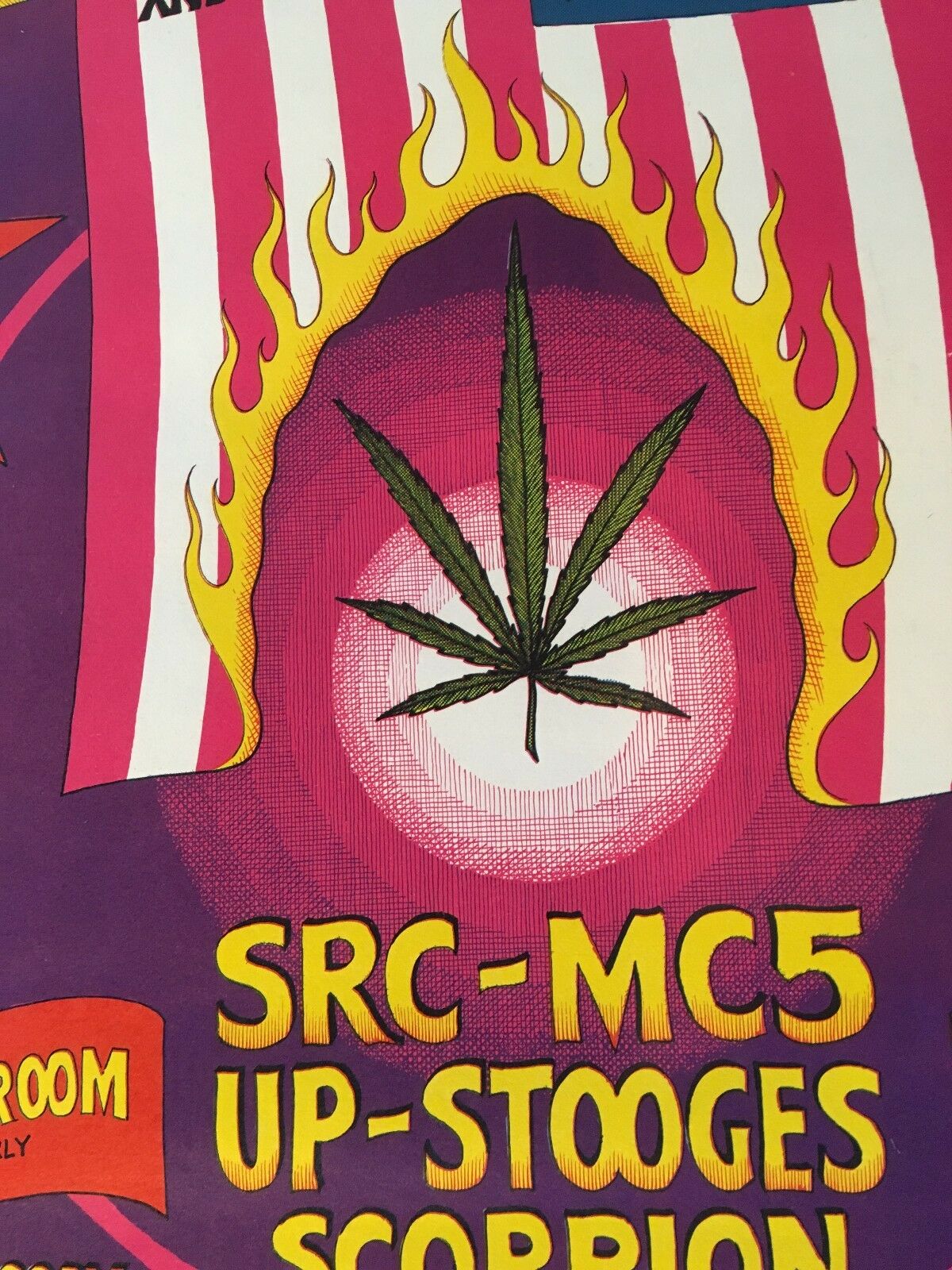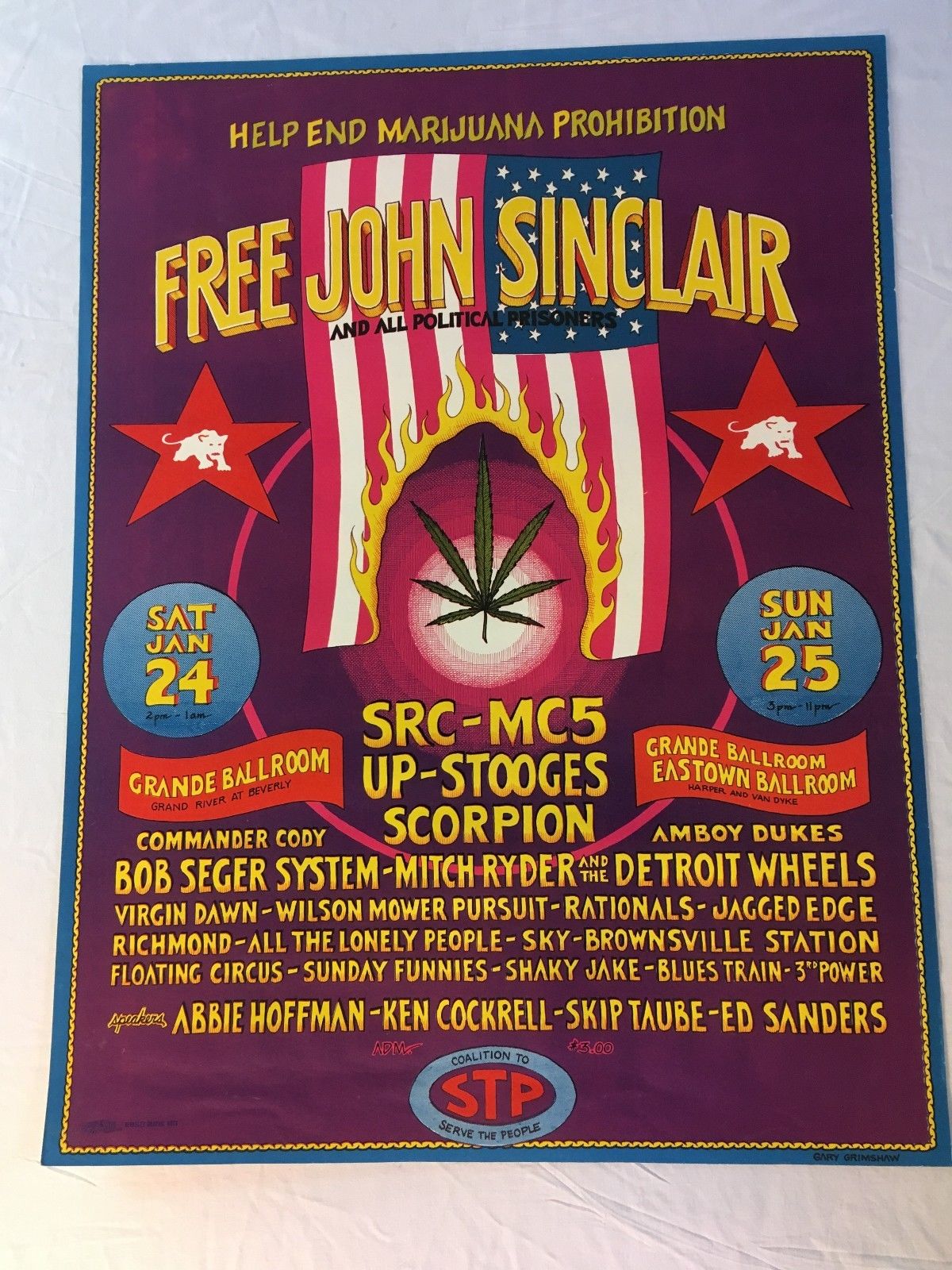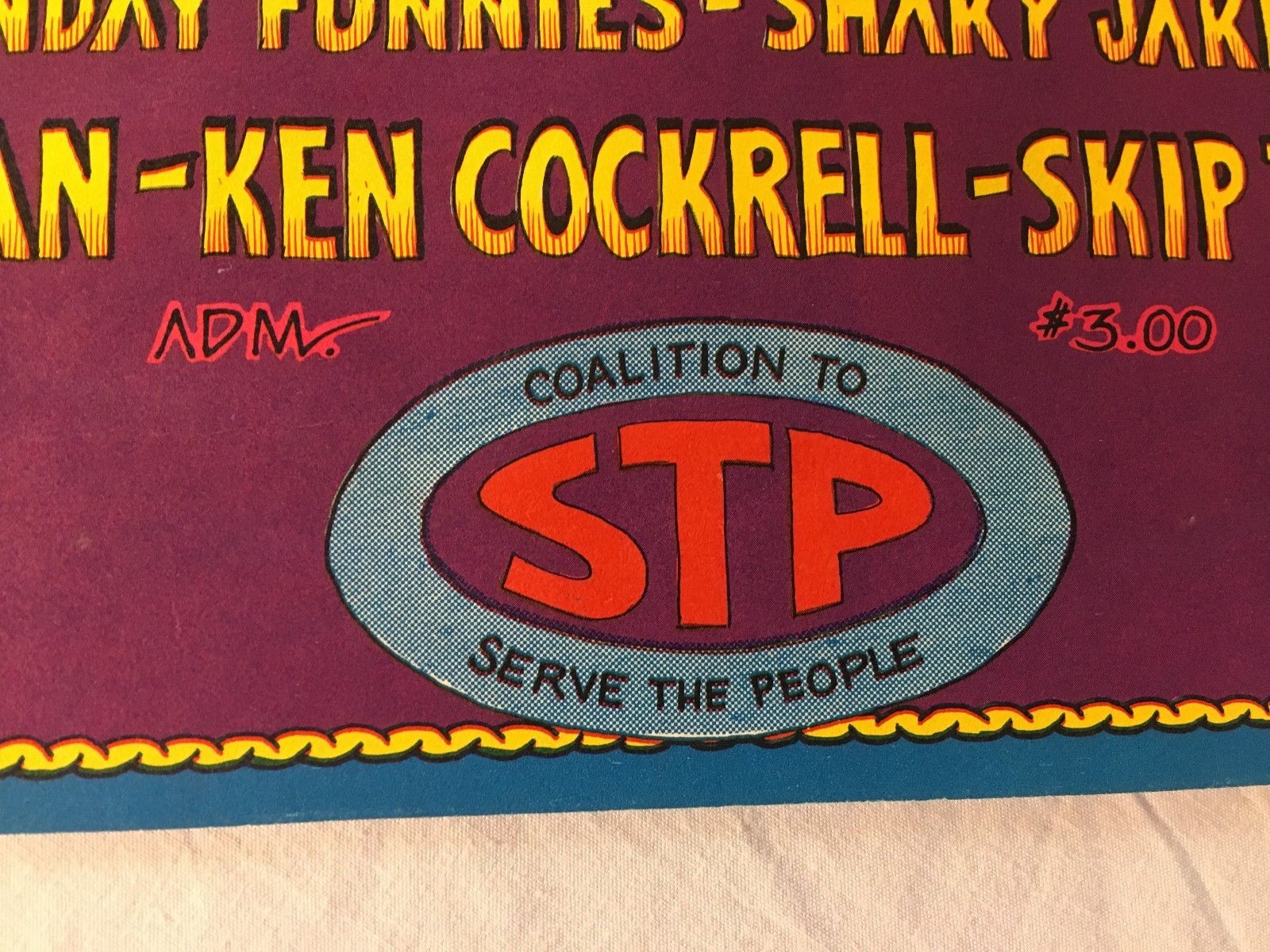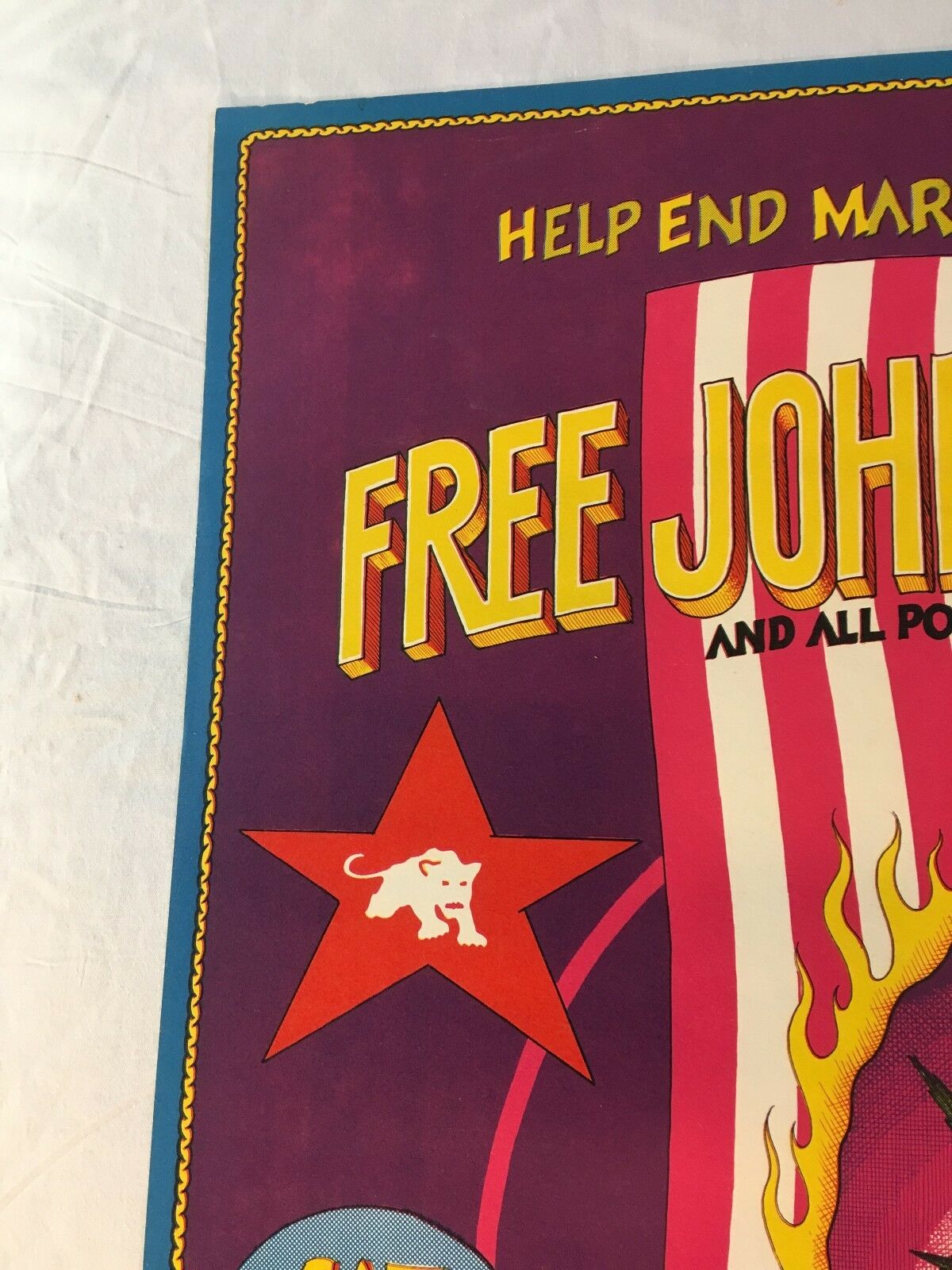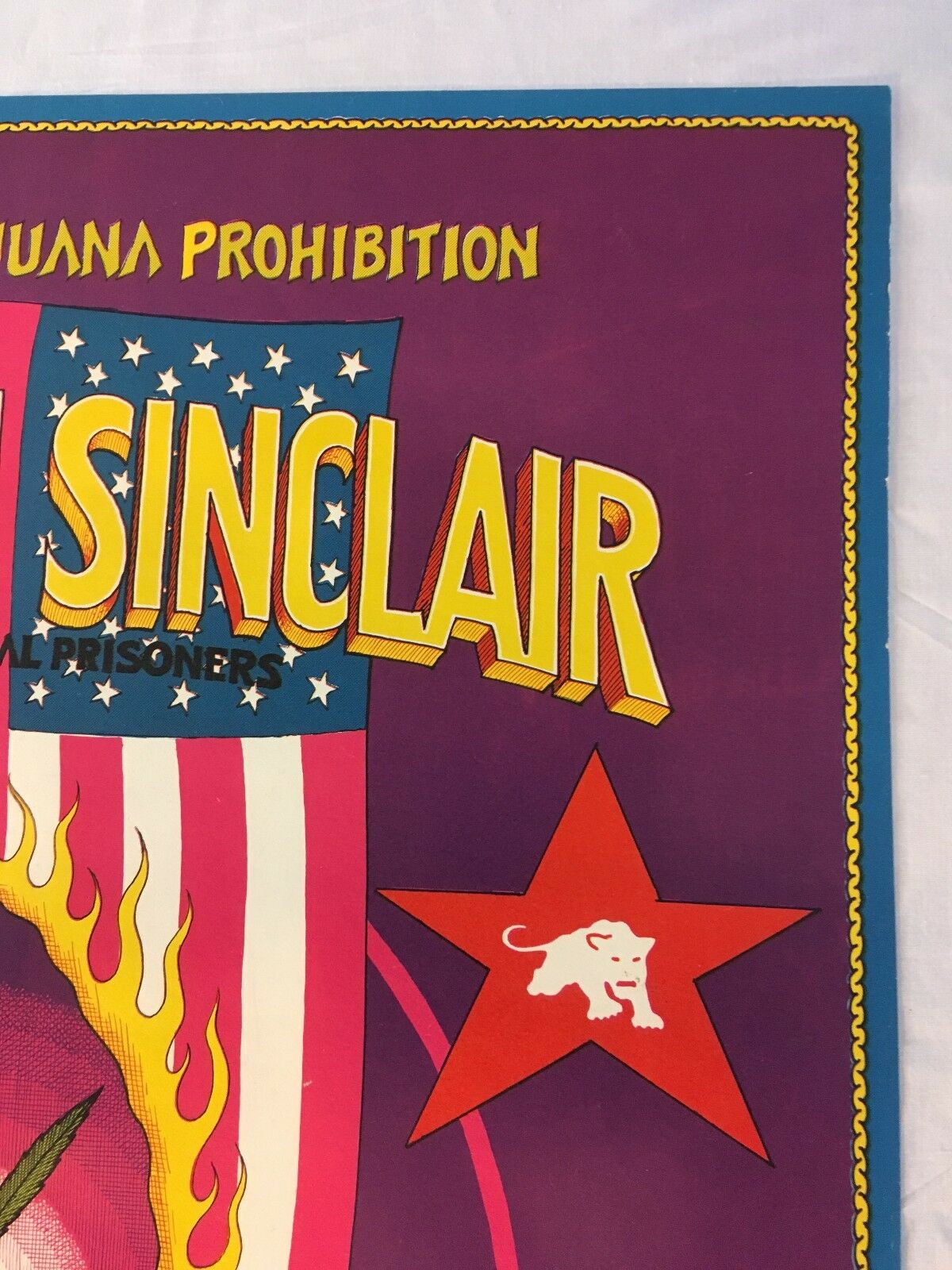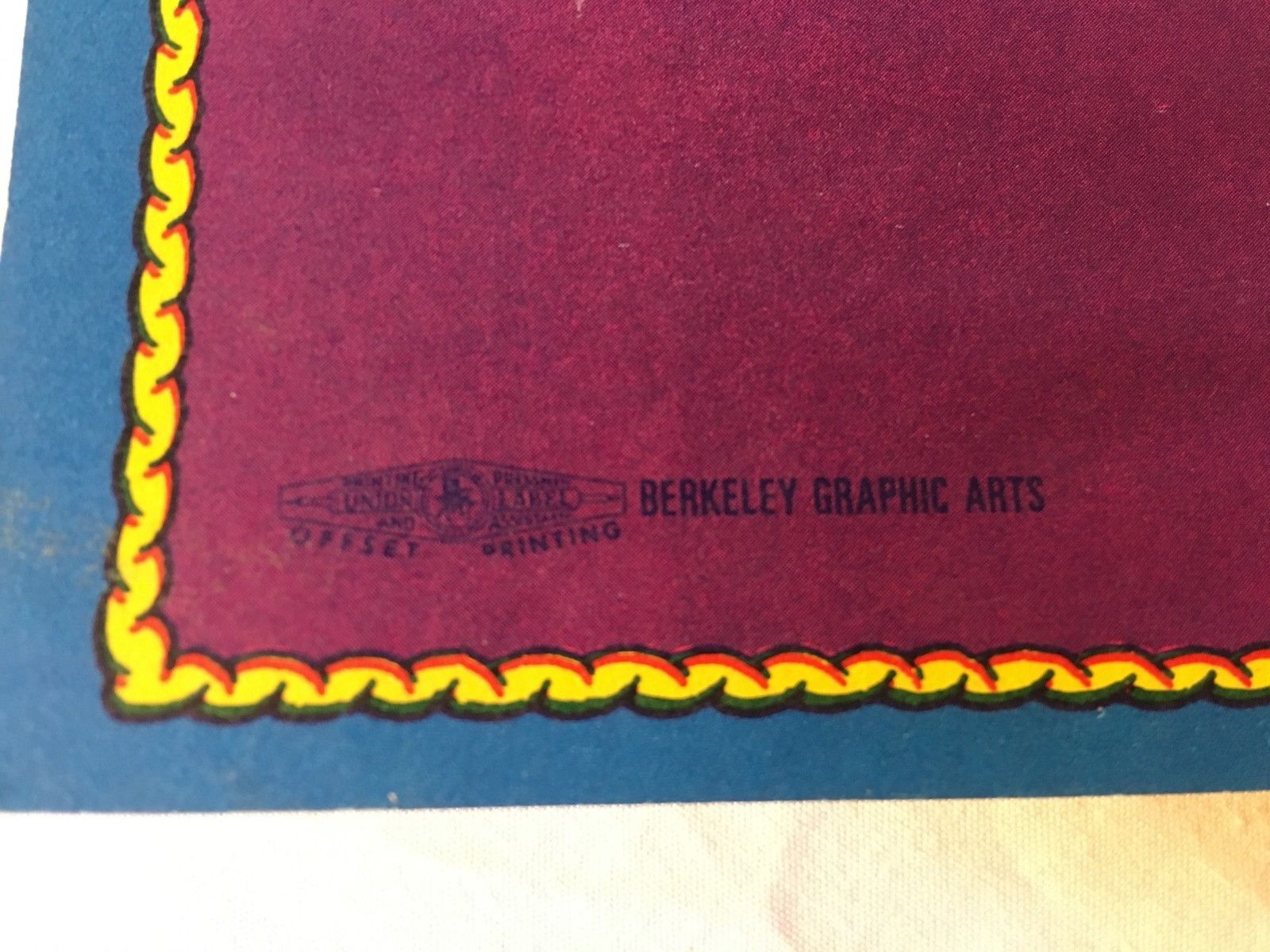Free John Sinclair and All Political Prisoners
Dublin Core
Creator
Date
Language
Format
Subject
Publisher
Poster Item Type Metadata
Sub Title
Help End Marijuana Prohibition
Cover Price
Adm. $3.00
Dimensions
16 1/16 x 22 3/16
Listing Title
1969 Free John Sinclair Grande Ballroom 420 Avalon Marijuana Poster Fillmore MC5
Seller ID
Seller Notes
AOR 4.193 Free John Sinclair Benefit 1969 by Gary Grimshaw 1st Print Poster
16 1/16 x 22 3/16 Uncoated Cover Very Good Condition #G/G-700124B-OP-1
Free John Sinclair Benefit Poster
Grande Ballroom - Detroit, MI
John Sinclair SR MC5 The Up The Stooges Scorpion Commander Cody The Amboy Dukes Bob Seger Mitch Ryder Virgin Dawn Wilson Mower Pursuit The Rationals
Jagged Edge Richmon All the Lonely People Sky Brownsville Station Floating Circus Sunday Funnies Shaky Jake Blues Train 3rd Power Abbie Hoffman Ken Cockrell Skip Taube Ed Sanders
Very Good Condition No Holes No Tears
John Sinclair
John Sinclair was a leading figure in the counterculture movement in the Detroit area. He was manager of MC5, the house band at the Grande Ballroom, and leader of the White Panther Party—an anti-racist countercultural group of white socialists that sought to assist the Black Panthers in the civil rights movement from 1968 to 1969. Sinclair was sentenced to 10 years in prison in 1969 after giving two joints of marijuana to an undercover police officer. The severity of the sentence caused a wave of protest that culminated in the landmark “Free John Now” rally, held at Crisler Arena in Ann Arbor in December 1971. Sinclair was released from prison three days after this rally, when the Michigan Supreme Court ruled the state’s marijuana statutes were unconstitutional.This poster is from a much earlier protest and fundraiser held at the Grande Ballroom, as well as the Eastown Ballroom in January 1970. The stellar lineup included virtually every well-known band of the area, including MC5, Iggy Pop, Bob Seger, and Mitch Ryder.
The Grande Ballroom
The Grande Ballroom is a historic live music venue located in the Petosky-Otsego neighborhood of Detroit, Michigan. In 1966 the The Grande was acquired by a Dearborn, Michigan, high school teacher and local radio DJ Russ Gibb. Gibb was inspired by visiting San Francisco's Fillmore Theater, and envisioned a similar venue in Detroit for the new psychedelic music and a resource for local teenagers.
Performances of this period were frequently advertised by the distinctive psychedelic handbills of Gary Grimshaw and Carl Lundgren.The Grande's rock and roll counter cultural experience was extensively documented by Detroit photographer Leni Sinclair. It was during this period that the Ballroom became known as the "hippie capitalist center of Detroit".
Since Gibb closed the Grande as a rock venue in 1972, the building has rarely been used and has fallen into a state of extreme disrepair. As of 2014, the historic club remains inactive and open to redevelopment.
$1600
16 1/16 x 22 3/16 Uncoated Cover Very Good Condition #G/G-700124B-OP-1
Free John Sinclair Benefit Poster
Grande Ballroom - Detroit, MI
John Sinclair SR MC5 The Up The Stooges Scorpion Commander Cody The Amboy Dukes Bob Seger Mitch Ryder Virgin Dawn Wilson Mower Pursuit The Rationals
Jagged Edge Richmon All the Lonely People Sky Brownsville Station Floating Circus Sunday Funnies Shaky Jake Blues Train 3rd Power Abbie Hoffman Ken Cockrell Skip Taube Ed Sanders
Very Good Condition No Holes No Tears
John Sinclair
John Sinclair was a leading figure in the counterculture movement in the Detroit area. He was manager of MC5, the house band at the Grande Ballroom, and leader of the White Panther Party—an anti-racist countercultural group of white socialists that sought to assist the Black Panthers in the civil rights movement from 1968 to 1969. Sinclair was sentenced to 10 years in prison in 1969 after giving two joints of marijuana to an undercover police officer. The severity of the sentence caused a wave of protest that culminated in the landmark “Free John Now” rally, held at Crisler Arena in Ann Arbor in December 1971. Sinclair was released from prison three days after this rally, when the Michigan Supreme Court ruled the state’s marijuana statutes were unconstitutional.This poster is from a much earlier protest and fundraiser held at the Grande Ballroom, as well as the Eastown Ballroom in January 1970. The stellar lineup included virtually every well-known band of the area, including MC5, Iggy Pop, Bob Seger, and Mitch Ryder.
The Grande Ballroom
The Grande Ballroom is a historic live music venue located in the Petosky-Otsego neighborhood of Detroit, Michigan. In 1966 the The Grande was acquired by a Dearborn, Michigan, high school teacher and local radio DJ Russ Gibb. Gibb was inspired by visiting San Francisco's Fillmore Theater, and envisioned a similar venue in Detroit for the new psychedelic music and a resource for local teenagers.
Performances of this period were frequently advertised by the distinctive psychedelic handbills of Gary Grimshaw and Carl Lundgren.The Grande's rock and roll counter cultural experience was extensively documented by Detroit photographer Leni Sinclair. It was during this period that the Ballroom became known as the "hippie capitalist center of Detroit".
Since Gibb closed the Grande as a rock venue in 1972, the building has rarely been used and has fallen into a state of extreme disrepair. As of 2014, the historic club remains inactive and open to redevelopment.
$1600
Collection
Citation
Gary Grimshaw, “Free John Sinclair and All Political Prisoners,” Wirtshafter Collection-Cannabis Museum-Athens, Ohio, accessed May 20, 2024, https://cannabismuseum.com/omeka/items/show/3605.
